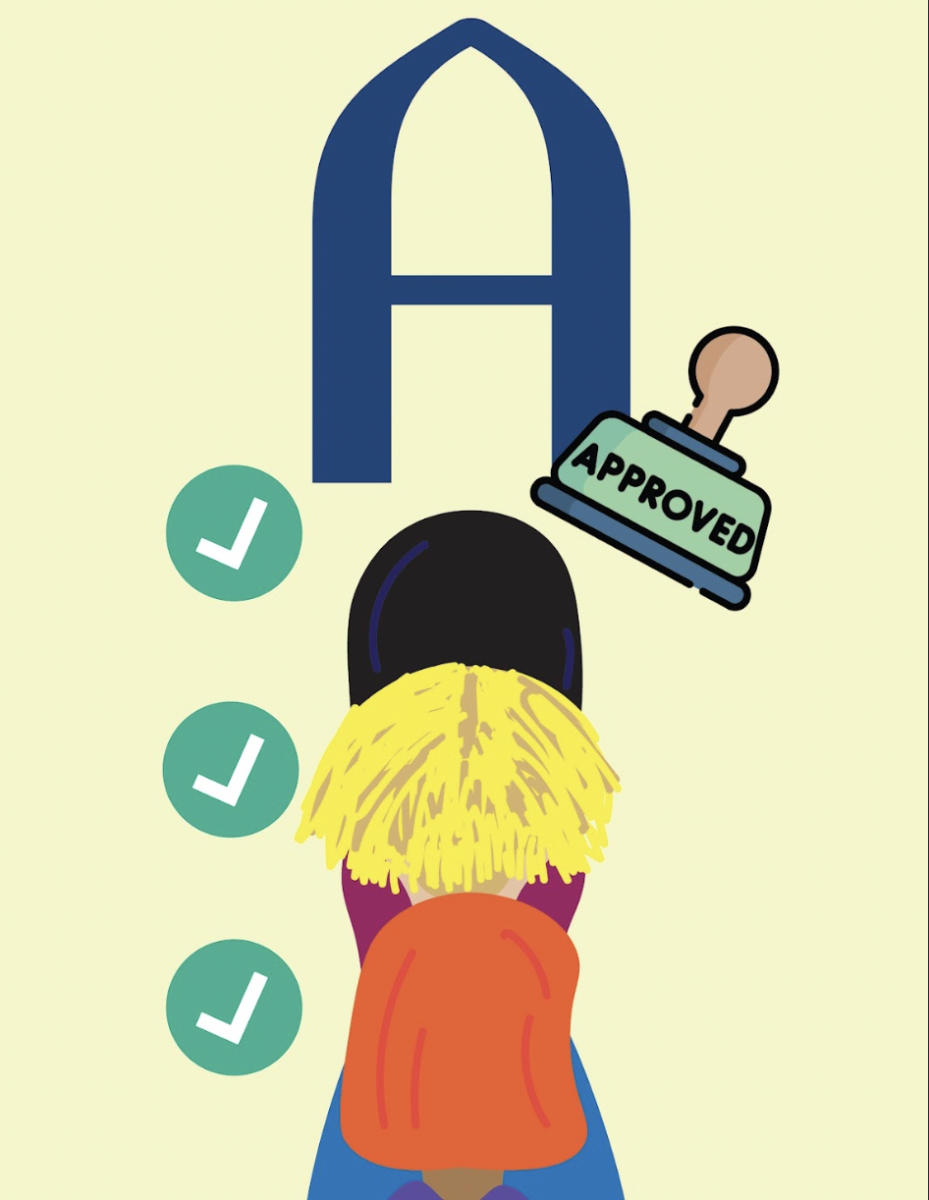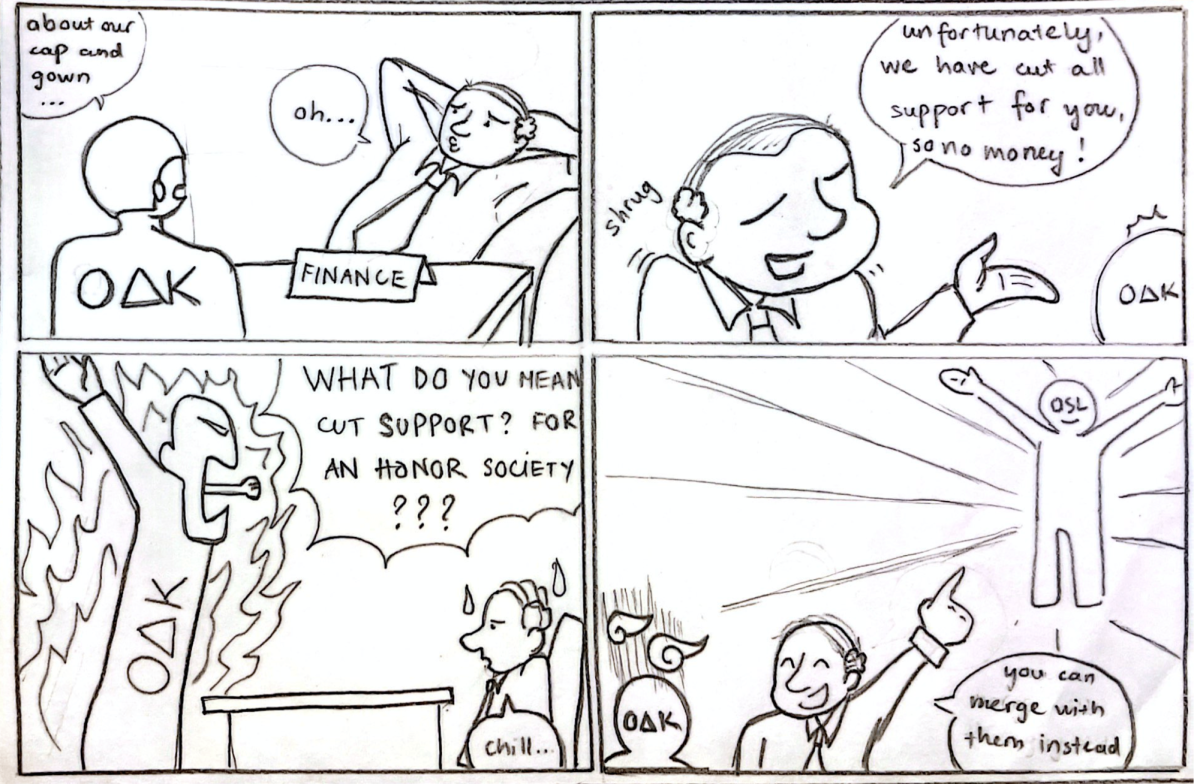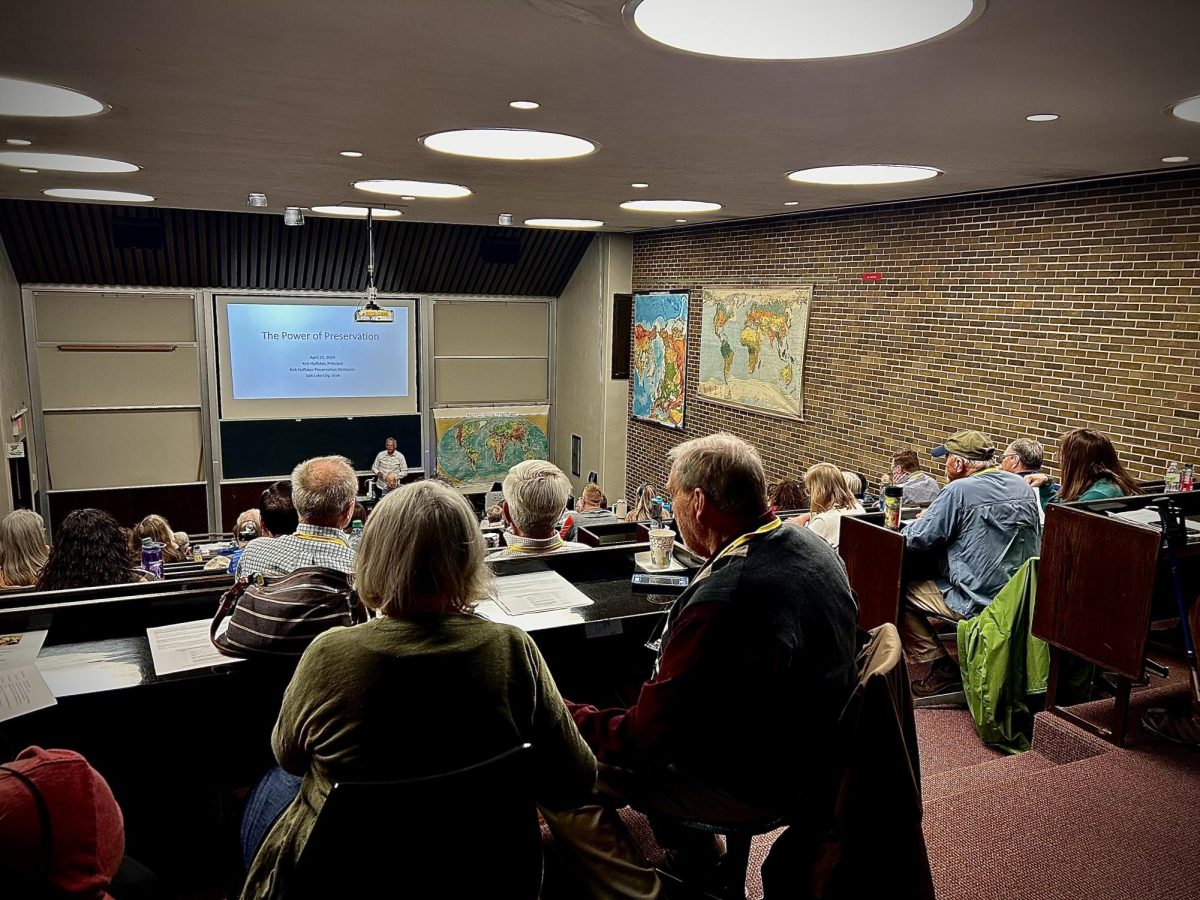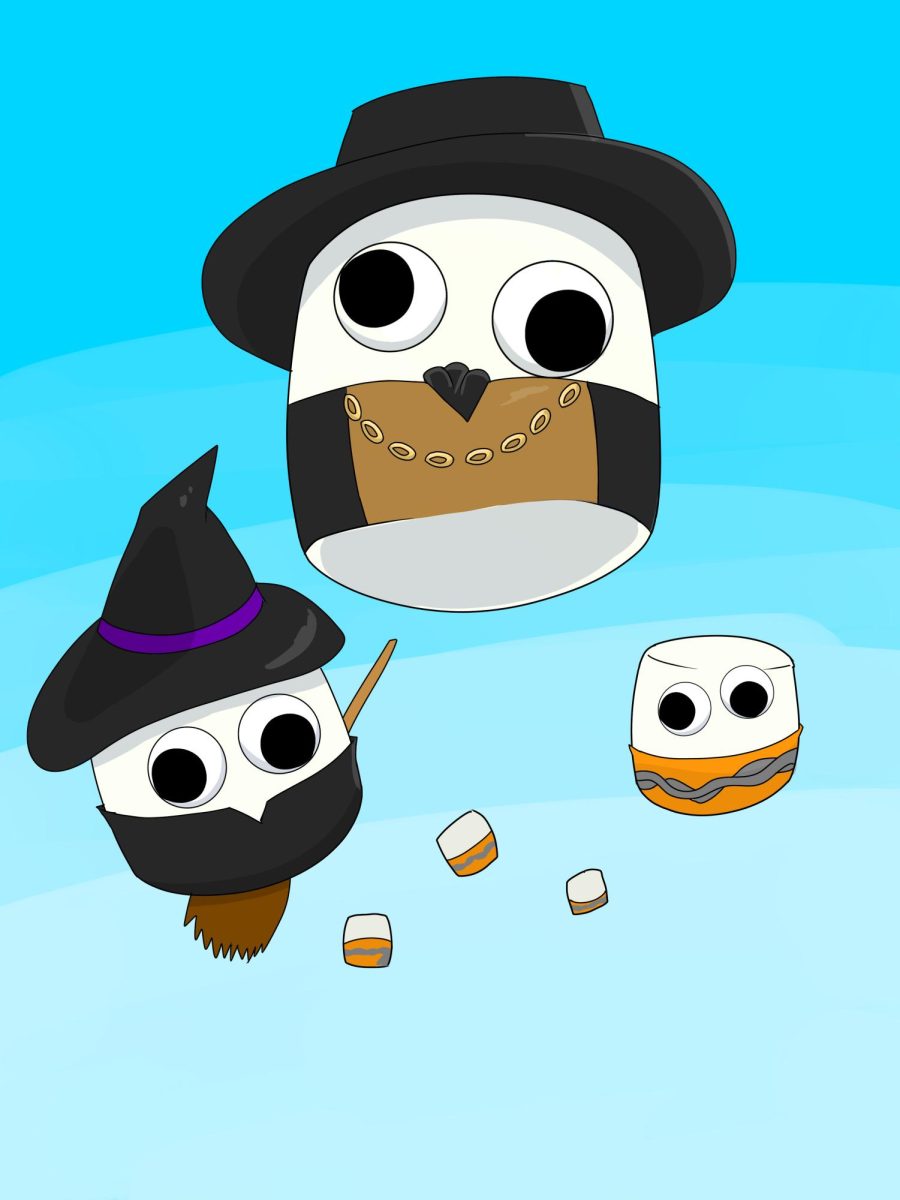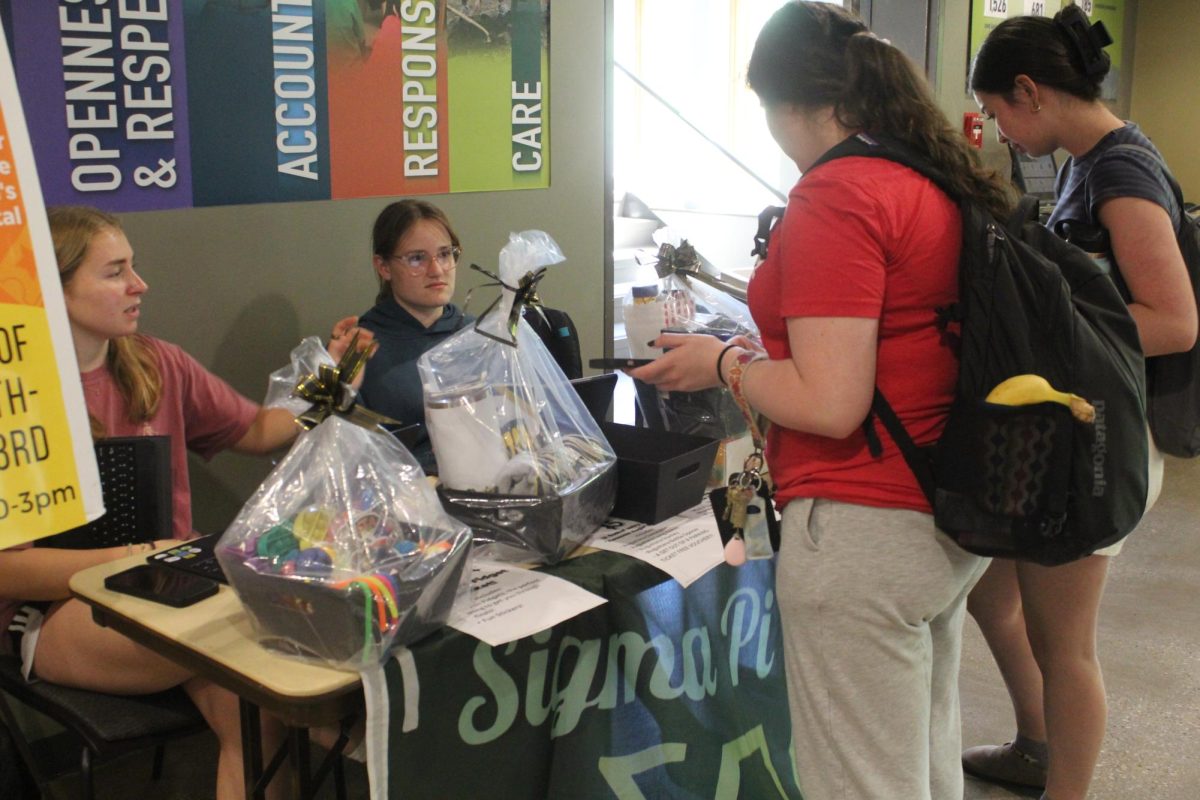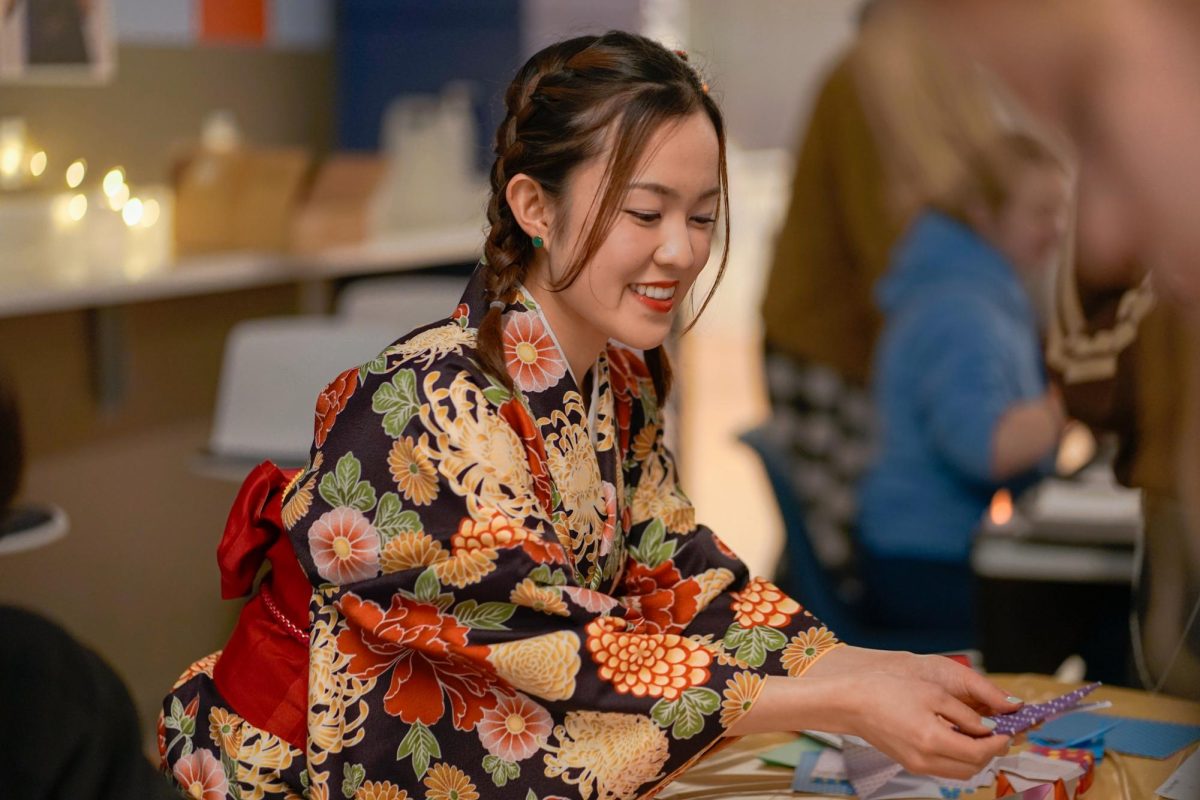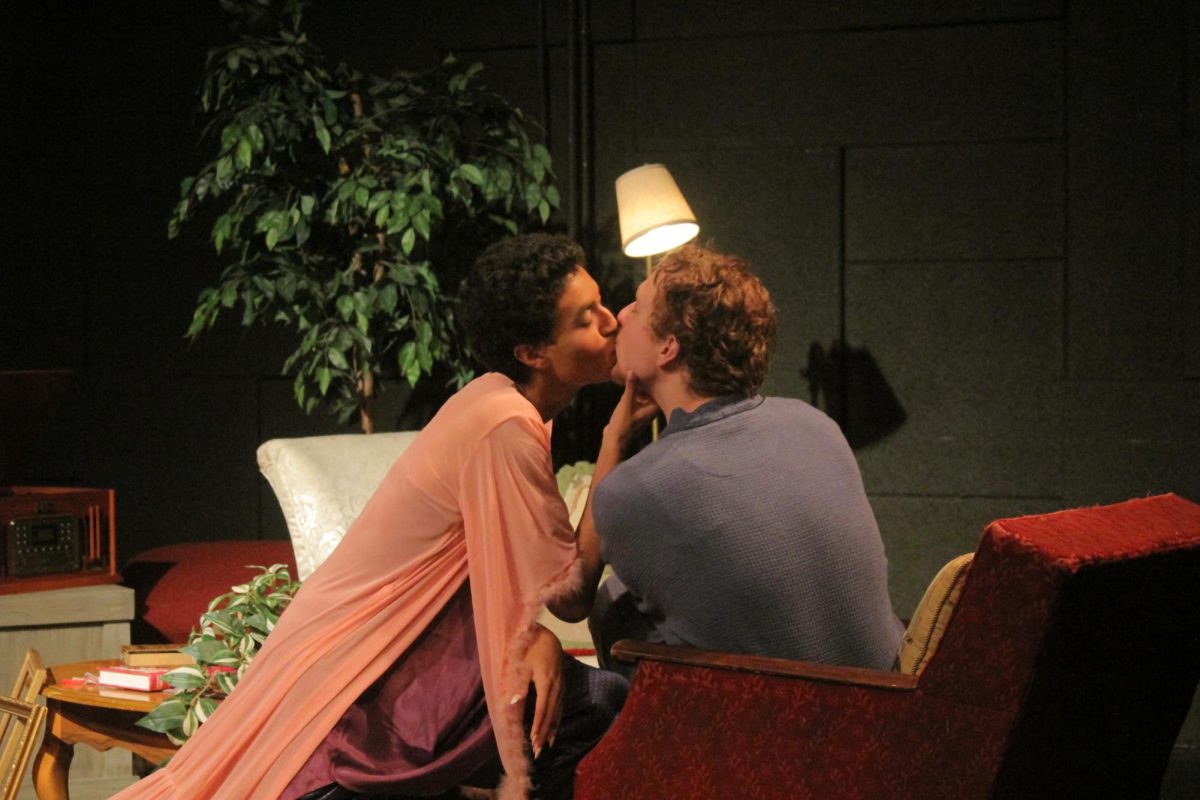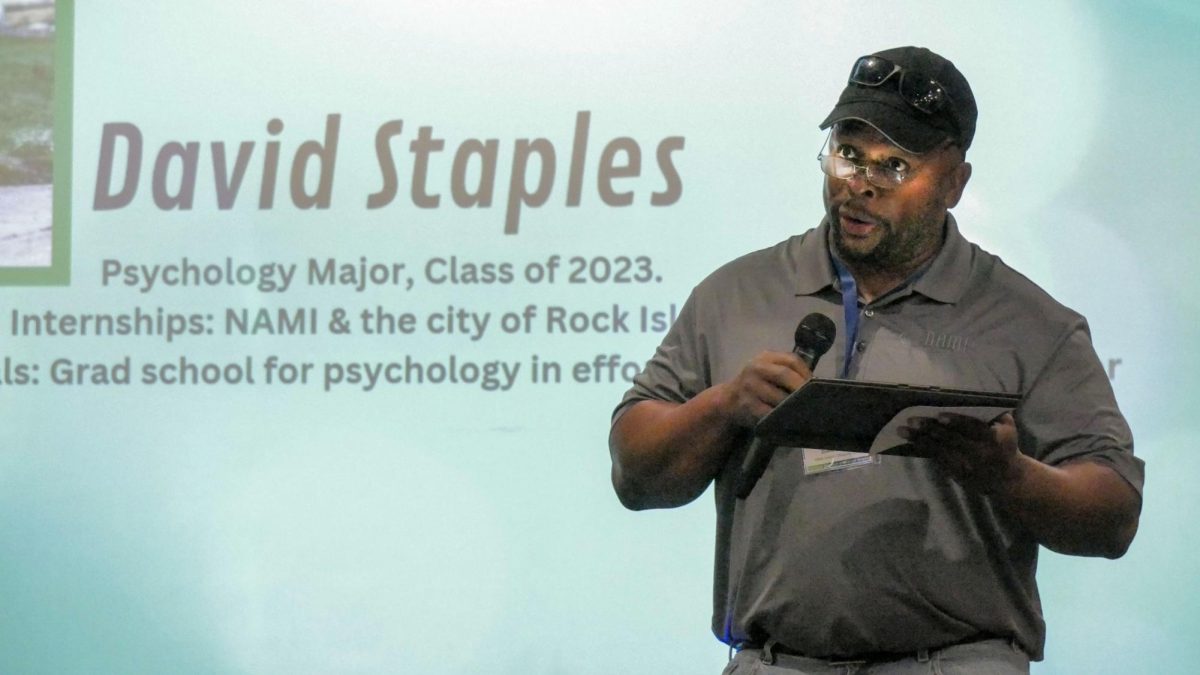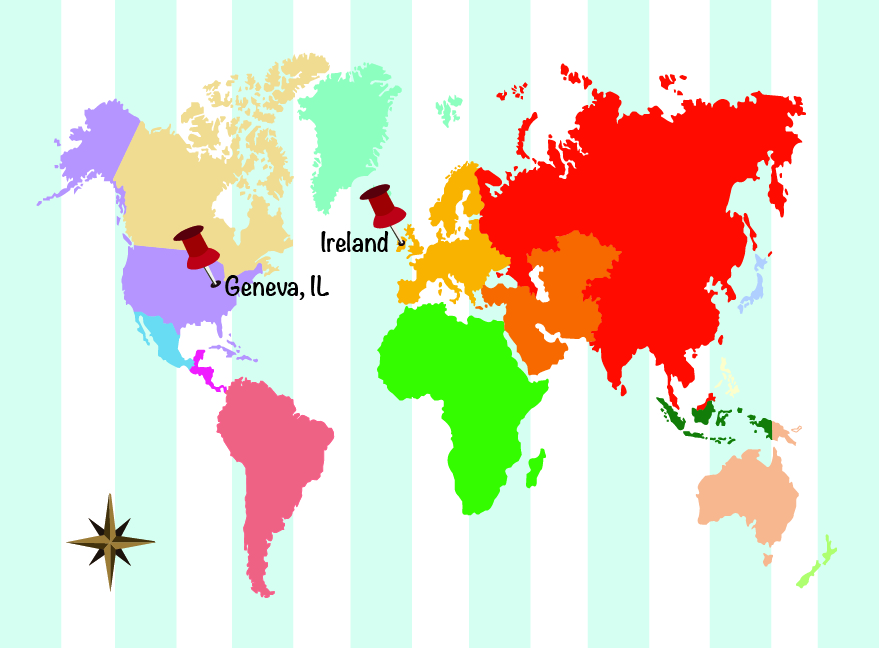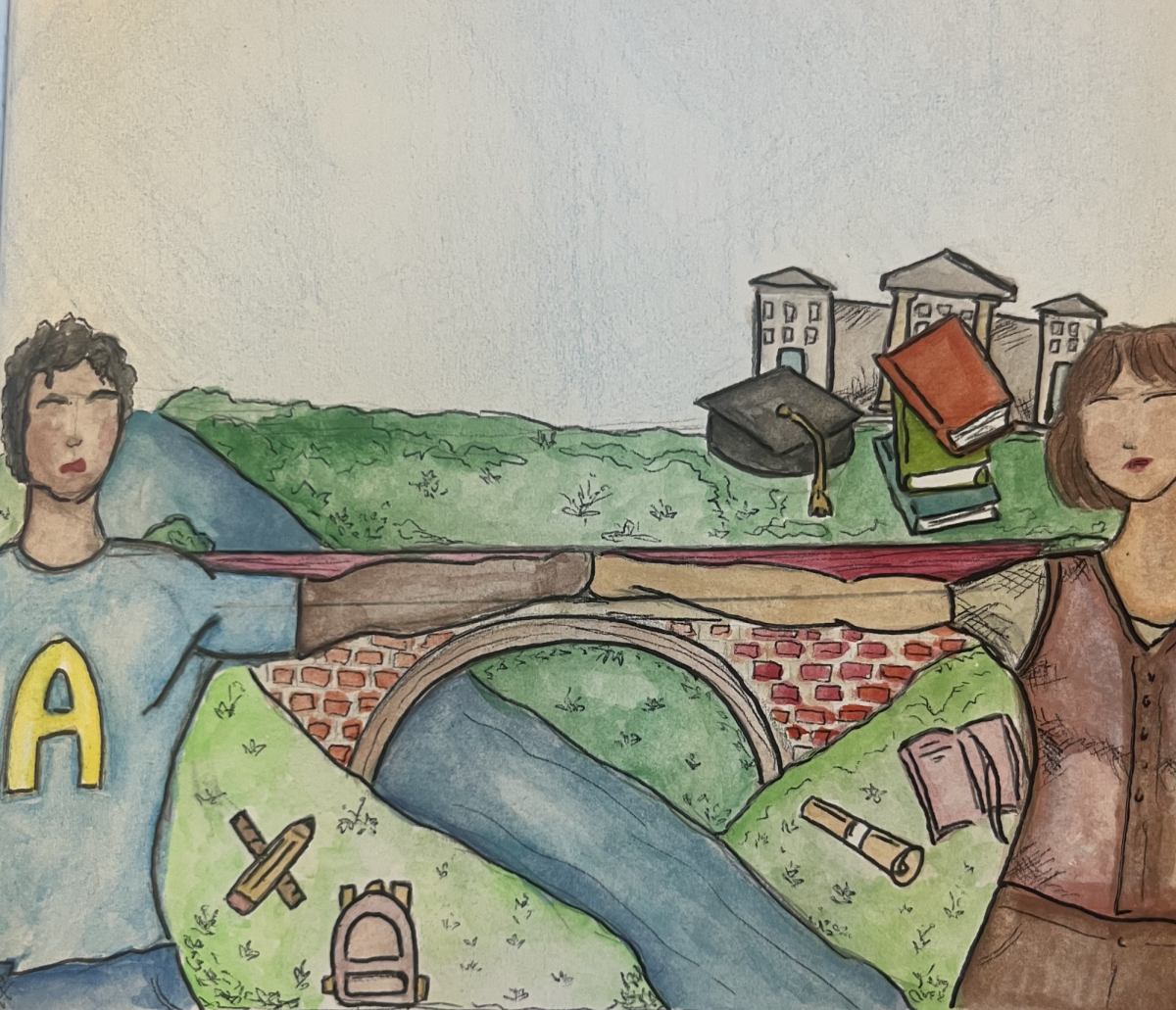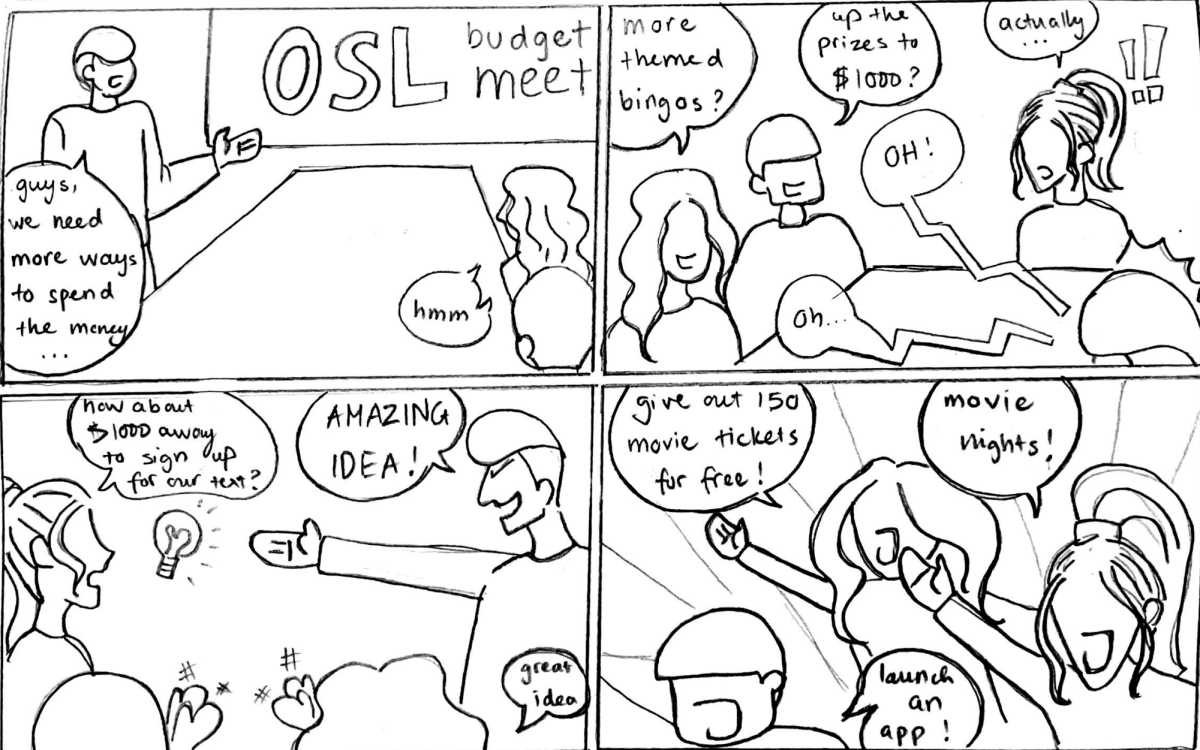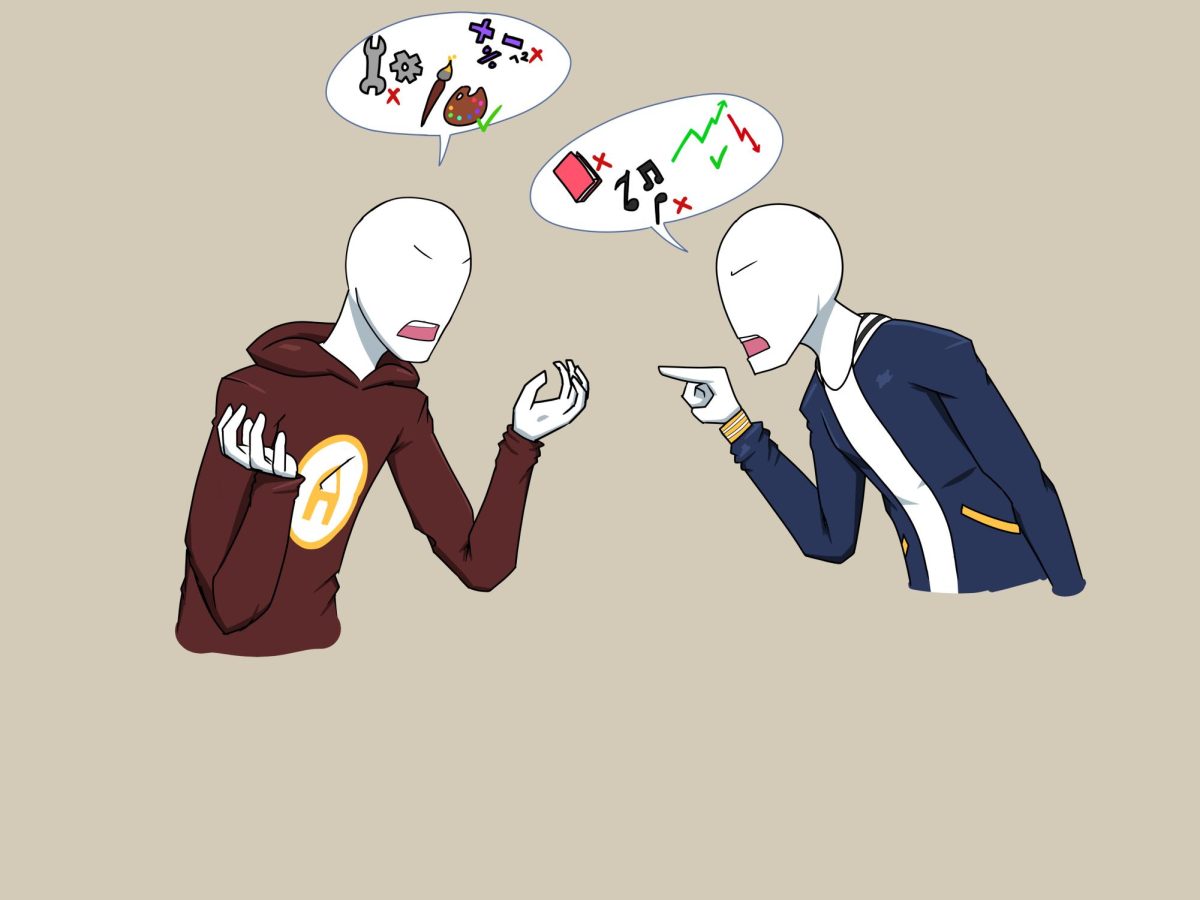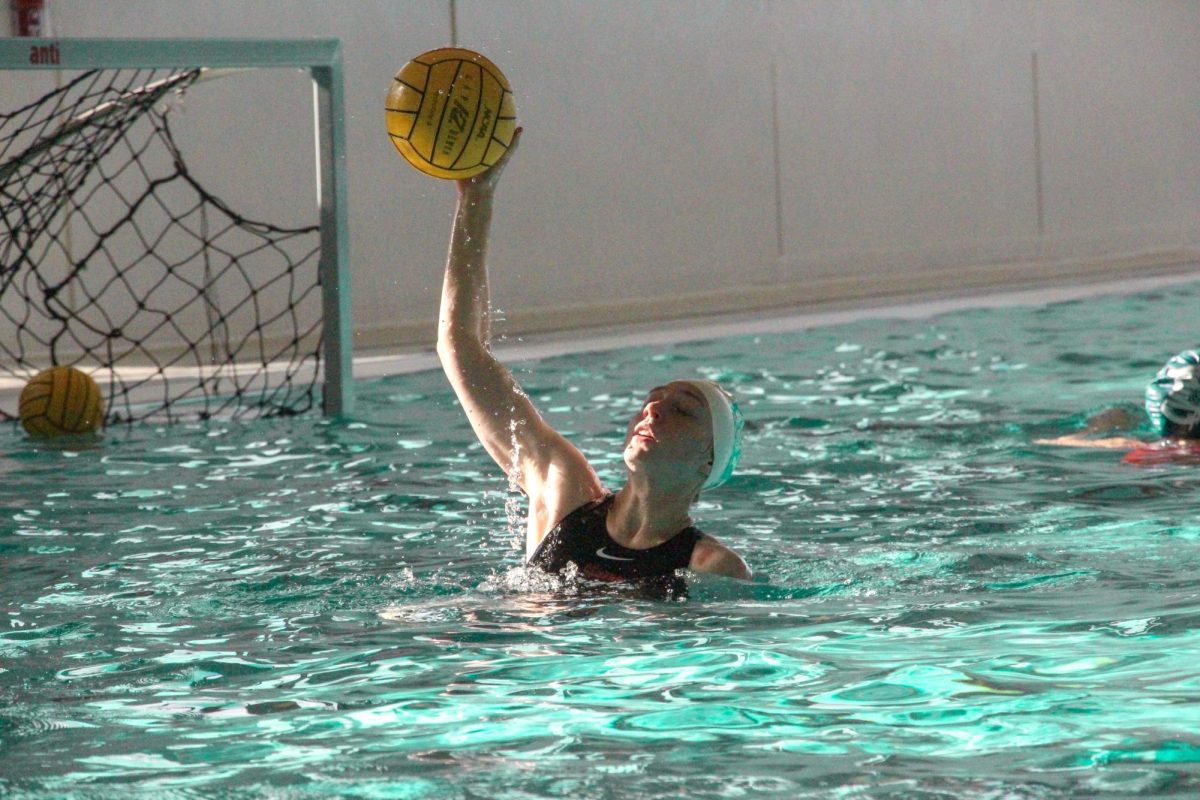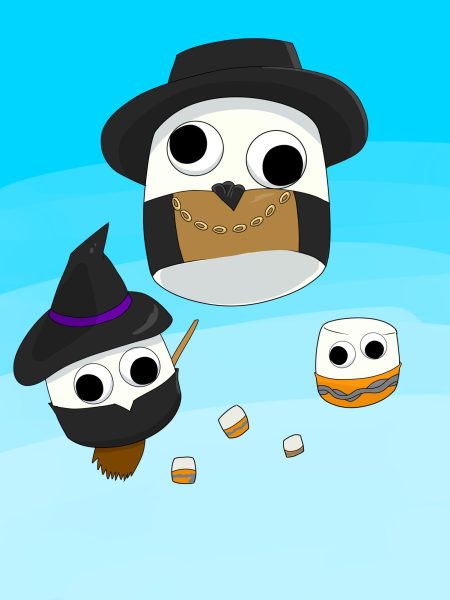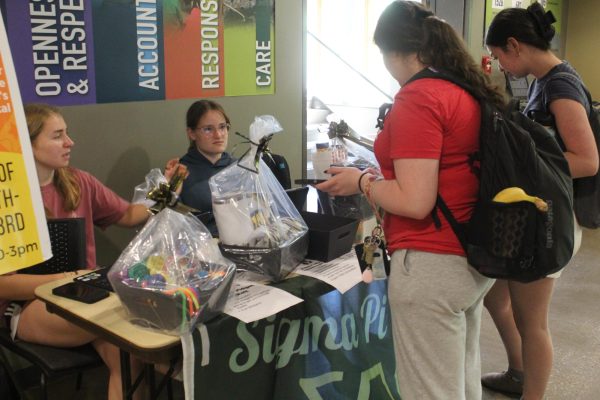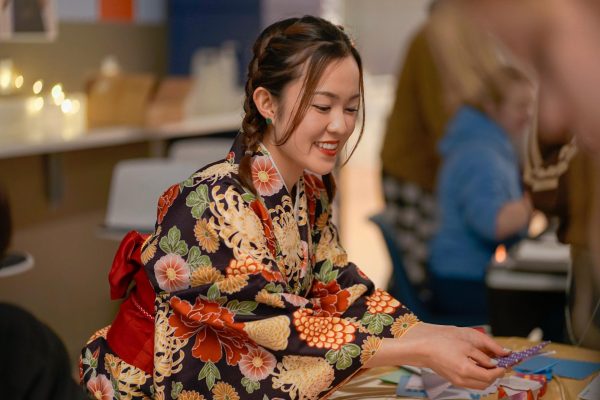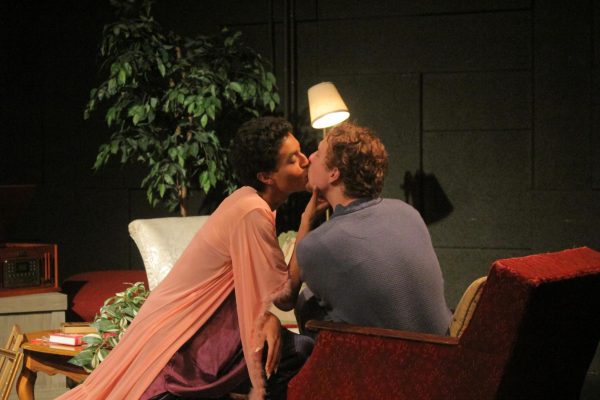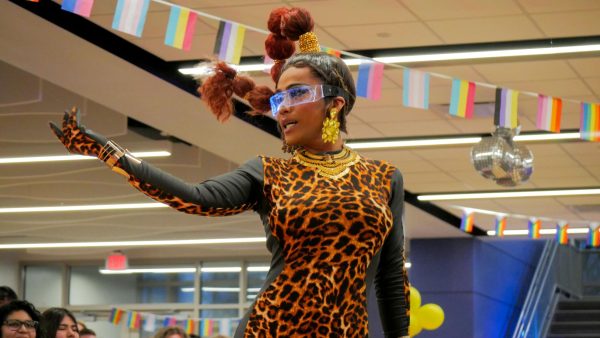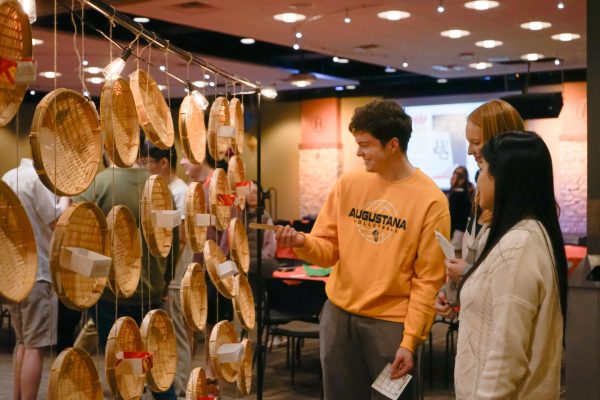Banned books: Reading between the lines
October 21, 2022
On Oct. 12, students who couldn’t get a seat crowded on the floor to hear Kyle King and Chloe Baxter present “The Dilemma of Banned Books” for Symposium Day.
King and Baxter addressed the legal precedents of book banning, the positive correlation between reading banned books and civic engagement and which groups are affected more than others in terms of race, sexual orientation and gender.
Book bannings are on the rise in schools and libraries throughout the U.S. Book banning plays a significant role in students’ lives on and off campus because it impacts not only which identities are represented in the pages but also the human right to read and think.
A book banning often starts when a parent challenges a book at a school board meeting. Typically, if parents have concerns about a certain book, they can discuss that individually with the teacher and ask that their child be given an alternate reading. Banning a book, however, takes away the choice to read that book from every other student in that area.
First-year students Patrick Lower and Abigail Kimber, who attended King and Baxter’s presentation, said they did not know much about the subject before attending. Both read banned books in their high schools.
“It was a good, educational read because it gave you a different view on things historically,” Lower said.
According to Kimber, banned books can help people understand different viewpoints, people from different backgrounds and important histories.
“I feel like that’s what most of the issues are in this country: because we try to erase history,” Kimber said.
PEN America, an international nonpartisan nonprofit organization which aims to protect writers and artists from being jailed, tortured or killed for what they create, also held a presentation on Symposium Day entitled “PEN America: Defending Free Expression for 100 Years.” Like King and Baxter, PEN America discussed the dangers of banning books that include the identities of marginalized groups.
“Especially among queer youth, it’s having a very high effect on suicide rates, isolation [and] high rates of depression, because these books are often a place of solace for students who have been ostracized by their communities,” Peris Tushabe, PEN America’s free expression and education program assistant, said.
Local independent bookstore, The Artsy Bookworm, stocks banned books for the Quad Cities community. Owner Dr. Tamara Felden currently teaches at Augustana part-time in the Austin E. Knowlton Honors Program. Sections of her store are dedicated to Black authors, LGBTQ topics and neurodiversity, with a table in the center of the store showcasing banned books.
According to Felden, it is crucial for readers to see the realities of a broad range of identities represented in books.
“Teachers in pedagogy talk about mirrors and windows. When we read, we enjoy seeing ourselves somehow reflected in what we’re reading. If there is a character with whom we have things in common, that reflects us, we can identify with that,” Felden said. “Windows, at the same time, gives an opportunity to explore something that we don’t, in real life, experience.”
Many times, books are banned because they address a topic that makes someone uncomfortable.
“If nothing ever makes us uncomfortable, we’ll probably never learn anything,” Felden said. “We need to encounter a lot of different viewpoints and a lot of different stories. Curtailing the freedom to read, I think, comes hand in hand with curtailing the freedom to think.”
As more books are banned, teachers and librarians fear losing their jobs. Many have begun to self-censor by pulling books off shelves before they are officially banned. Topics like LGBTQ+ and racial issues are censored more than others. PEN America has seen trends like this in educators across the country as they catalogue which books are banned.
“Teachers are now so afraid to teach certain things that bits of curriculum are being skipped or teachers are getting fired. They’re too scared to do their job,” Tushabe said. “If we can’t trust our educators like we always have, then what do we do as a school system anymore?”
Because The Artsy Bookworm is independently-owned, its inventory is solely controlled by Felden, which allows the store more freedom to choose books without fearing consequences.
“One of the things that banning things and censorship does is generate fear,” Felden said. “I think that censorship is always aimed at the suppression of ideas. And literature is always about the publication and discussion of ideas.”
Located around the corner from Erickson, The Artsy Bookworm welcomes students and community members to come in with questions and find a book they’ve never seen before. By offering books with diverse ideas and identities, The Artsy Bookworm works to empower future generations of thinkers.
“Books are indicative of something much bigger than a physical object that’s paper and cardboard,” Felden said.
From an international organization to an individual student, book bans impact all people, and everyone can have an impact on defending free expression. Felden encourages the Quad Cities community to read banned books and see what they have to offer.
“Read them anyway, by any means necessary. It’s probably worthwhile,” Felden said. “For everybody who values their freedom to read and think, this is a battle they should be in.”
Kyle King and Chloe Baxter are employees of the Observer.
